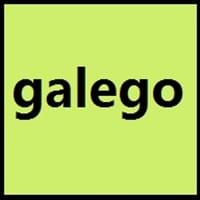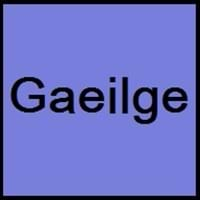Galician and Irish
Countries
Galicia
European Union, Ireland
National Language
Galicia
Ireland
Second Language
Not spoken in any of the countries
Ireland
Speaking Continents
Europe
Europe
Minority Language
Not spoken in any of the countries
United Kingdom
Regulated By
Royal Galician Academy (Real Academia Galega)
Foras na Gaeilge
Interesting Facts
- In Galician language, there are no compound tenses.
- The earliest document in Galician language was written in 1228 which was legal charter for a municipality of Galicia.
- In Irish language, there are no exact words for "yes" or "no".
- There are different set of numbers for counting humans and another set for counting non-humans in Irish Language.
Similar To
Portuguese Language
Not Available
Derived From
Latin
Not Available
Alphabets in
Galician-Alphabets.jpg#200
Irish-Alphabets.jpg#200
Writing Direction
Left-To-Right, Horizontal
Left-To-Right, Horizontal
Language Levels
Not Available
Time Taken to Learn
Not Available
Thank You
Grazas
Go raibh maith agat
How Are You?
Que tal estás?
Conas atá tú ?
Good Night
Boas noites
Oíche mhaith
Good Evening
Boa tarde
Tráthnóna maith duit
Good Afternoon
Boa tarde
Tráthnóna maith duit
Good Morning
Bos días
Dia dhuit ar maidin
Please
Por favor
le do thoil
Sorry
Síntoo!
Tá brón orm
I Love You
Ámote
Is breá liom thú
Excuse Me
Perdoe!
Gabh mo leithscéal
Dialect 1
Eastern Galician
Connacht Irish
Where They Speak
East Galicia
Connacht
Dialect 2
Central Galician
Munster Irish
Where They Speak
Central Galicia
Munster
Dialect 3
Western Galician
Ulster Irish
Where They Speak
West Galicia
Ulster
Speaking Population
Not Available
Not Available
Second Language Speakers
Not Available
Native Name
Galego
Gaeilge (na hÉireann) / An Ghaeilge
Alternative Names
Galego, Gallego
Erse, Gaeilge, Gaelic Irish
French Name
galicien
irlandais moyen
German Name
Galicisch
Mittelirisch
Pronunciation
[ɡaˈleɣo]
[ˈɡeːlʲɟə]
Ethnicity
Not Available
Irish people
Language Family
Indo-European Family
Indo-European Family
Subgroup
Not Available
Celtic
Branch
Not Available
Goidelic
Early Forms
Medieval Galician
Primitive Irish, Old Irish, Middle Irish, Classical Irish, Irish
Standard Forms
Galician
An Caighdeán Oifigiúil
Signed Forms
Not Available
Irish Sign Language
Scope
Individual
Individual
ISO 639 6
Not Available
Not Available
Glottocode
gali1258
iris1253
Linguasphere
51-AAA-ab
50-AAA
Language Type
Living
Living
Language Linguistic Typology
Not Available
Verb-Subject-Object
Language Morphological Typology
Not Available
Fusional
All Galician and Irish Dialects
Most languages have dialects where each dialect differ from other dialect with respect to grammar and vocabulary. Here you will get to know all Galician and Irish dialects. Various dialects of Galician and Irish language differ in their pronunciations and words. Dialects of Galician are spoken in different Galician Speaking Countries whereas Irish Dialects are spoken in different Irish speaking countries. Also the number of people speaking Galician vs Irish Dialects varies from few thousands to many millions. Some of the Galician dialects include: Eastern Galician, Central Galician. Irish dialects include: Connacht Irish , Munster Irish. Also learn about dialects in South American Languages and North American Languages.
Galician and Irish Speaking population
Galician and Irish speaking population is one of the factors based on which Galician and Irish languages can be compared. The total count of Galician and Irish Speaking population in percentage is also given. The percentage of people speaking Galician language is Not Available whereas the percentage of people speaking Irish language is Not Available. When we compare the speaking population of any two languages we get to know which of two languages is more popular. Find more details about how many people speak Galician and Irish on Galician vs Irish where you will get native speakers, speaking population in percentage and native names.
Galician and Irish Language Codes
Galician and Irish language codes are used in those applications where using language names are tedious. Galician and Irish Language Codes include all the international language codes, glottocodes and linguasphere.





